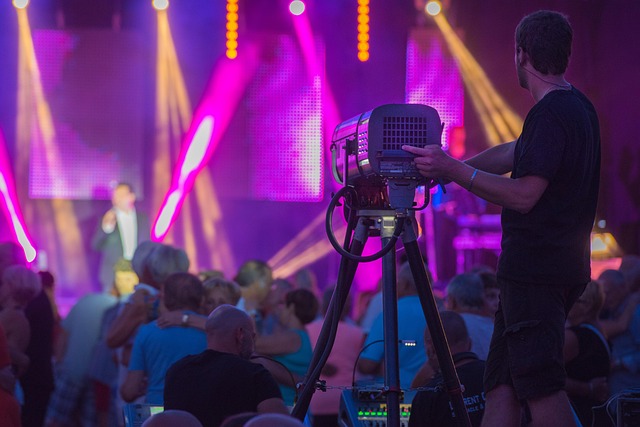Critical writing in theatre is not merely an exercise in summarizing performances or providing cursory reviews; it is an art form that bridges the gap between an artwork and its audience. As members of the entertainment industry, we often find ourselves at festivals, concerts, cinemas, and other artistic gatherings, where each work of art begs for analysis beyond its surface. It is here that the true essence of critical writing flourishes, serving as both a mirror and a lens, reflecting societal issues while offering fresh perspectives.
In the context of concerts and festivals, critical writing allows us to explore the deeper meanings behind the performances we witness. Take, for instance, a live concert by a pop icon. On the surface, it may seem like a glamorous display of lights and catchy tunes; however, a critical writer digs deeper, exploring the interplay of fashion, stage design, and musical arrangements. They might ask: How does this performance reflect current societal trends? Are there underlying messages in the lyrics that resonate with contemporary issues? Such questions not only enrich the viewing experience but also stimulate crucial conversations that leap from the page into everyday discussions.
In the realm of cinema, critical writing serves as an invaluable tool for dissecting narratives and visual styles. A skilled critic takes the time to understand a director’s vision, the cultural context in which a film was made, and the intricacies of character development. They guide audiences to see not only what is on screen but also what is left unsaid. A film that seems straightforward may actually challenge preconceptions or highlight marginalized voices, and critical writing helps to peel back these layers, illuminating the work’s significance in the grand narrative of cinema.
Similarly, the music industry thrives on critical writing to elevate artists’ work and foster understanding of their contributions. An album review is more than just a rundown of tracks; it is an invitation to engage with the artist’s intent and their place in the ever-evolving musical landscape. What influences shaped their sound? How do their lyrics comment on current events? When critics articulate these connections, they empower listeners to delve deeper into their playlists, transforming passive consumption into active engagement.
Festivals mark a paragon of creative expression, providing a vibrant playground for artists across various disciplines. Whether it’s a theatre festival spotlighting groundbreaking playwrights or a music festival showcasing emerging talent, critical writing plays a pivotal role in curating these experiences for audiences. It acts as a guiding light, helping attendees navigate which performances are worthy of their time, while simultaneously advocating for artists making bold leaps in creativity. The excitement and energy of these gatherings become amplified through insightful critique, enriching the overall festival experience.
Ultimately, critical writing in theatre and across the entertainment industry serves a significant purpose. It fosters a culture of dialogue and questioning while celebrating artistic endeavors. When done effectively, it can lead to increased awareness of important themes and motifs within a creative piece, sparking conversations that extend beyond the theatre door or concert hall. Through this critical lens, we learn to appreciate the profound impact of artistic expression in our lives and the world, elevating our understanding of what it means to be an audience member in this vibrant landscape of entertainment.


